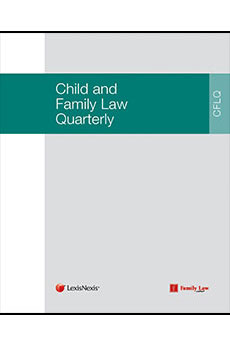- News & Comment
-
Online Shop
Online Services
Looseleafs
Law Reports
Books and eBooks
-
CPD & Events
Webinars
Events
- Authors
- About Family Law
- Contact


Resolution, the Family Law Bar Association and the International Academy of Family Lawyers have published a paper which sets out the options for family law following the UK’s withdrawal from the EU and warns that a lack of progress on Brexit negotiations could leave tens of thousands of families and children in limbo.
In 'Brexit and Family Law' the organisations say that the current reciprocal agreements between the UK and other EU member states must be maintained after Brexit, in order to provide safeguards and reassurance to those families and their children affected by divorce or separation, and involved in cross-border EU-UK family or child protection cases.
The full report can be read here.


The warning comes as Parliament continues to debate the EU Withdrawal Bill in committee stage.
Daniel Eames, who chairs Resolution’s International Committee, said:
‘Families needing to go to court must know that whatever court they end up in, in whatever country, that decision will be respected by other courts.
EU instruments which affect UK family law deal primarily with procedural rather than substantive family law - sovereignty is not the issue here - but they require full reciprocity to work.
Without reciprocity there is a risk of a “one way street” – the UK would continue to apply EU family law and be obliged unilaterally to recognise and enforce decisions of other EU member states –whereas EU member states would not be obliged to recognise and enforce our decisions.
This is a crucial issue for tens thousands of families in the UK, and the rest of the EU. If unresolved, these families could be left in limbo.
Our concern is that family law will go unnoticed among all the talk of trade deals, immigration and internal party politics. It may not top the Government’s priorities for Brexit, but the impact of inaction would be felt by families and their children for many years to come.’



